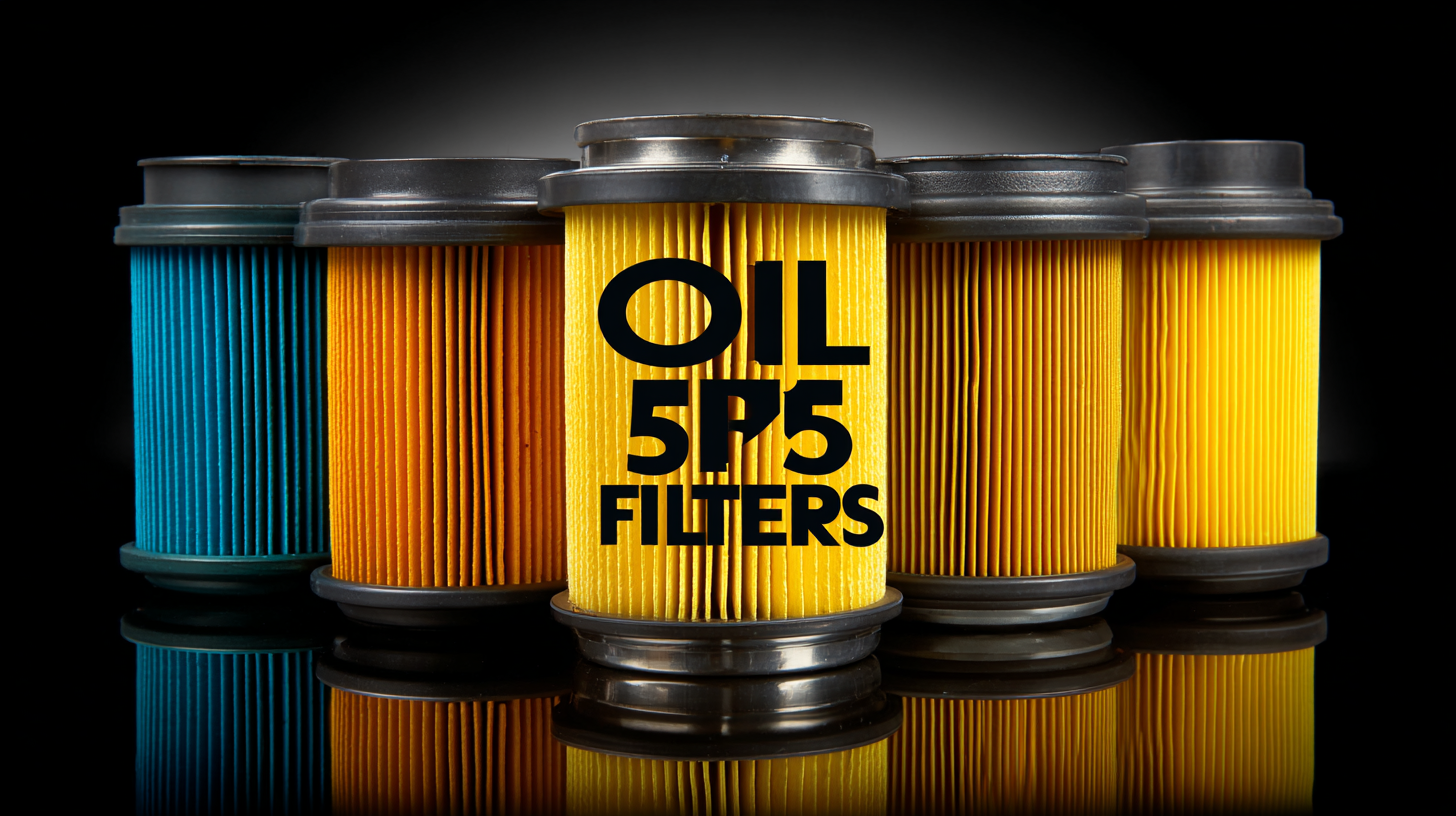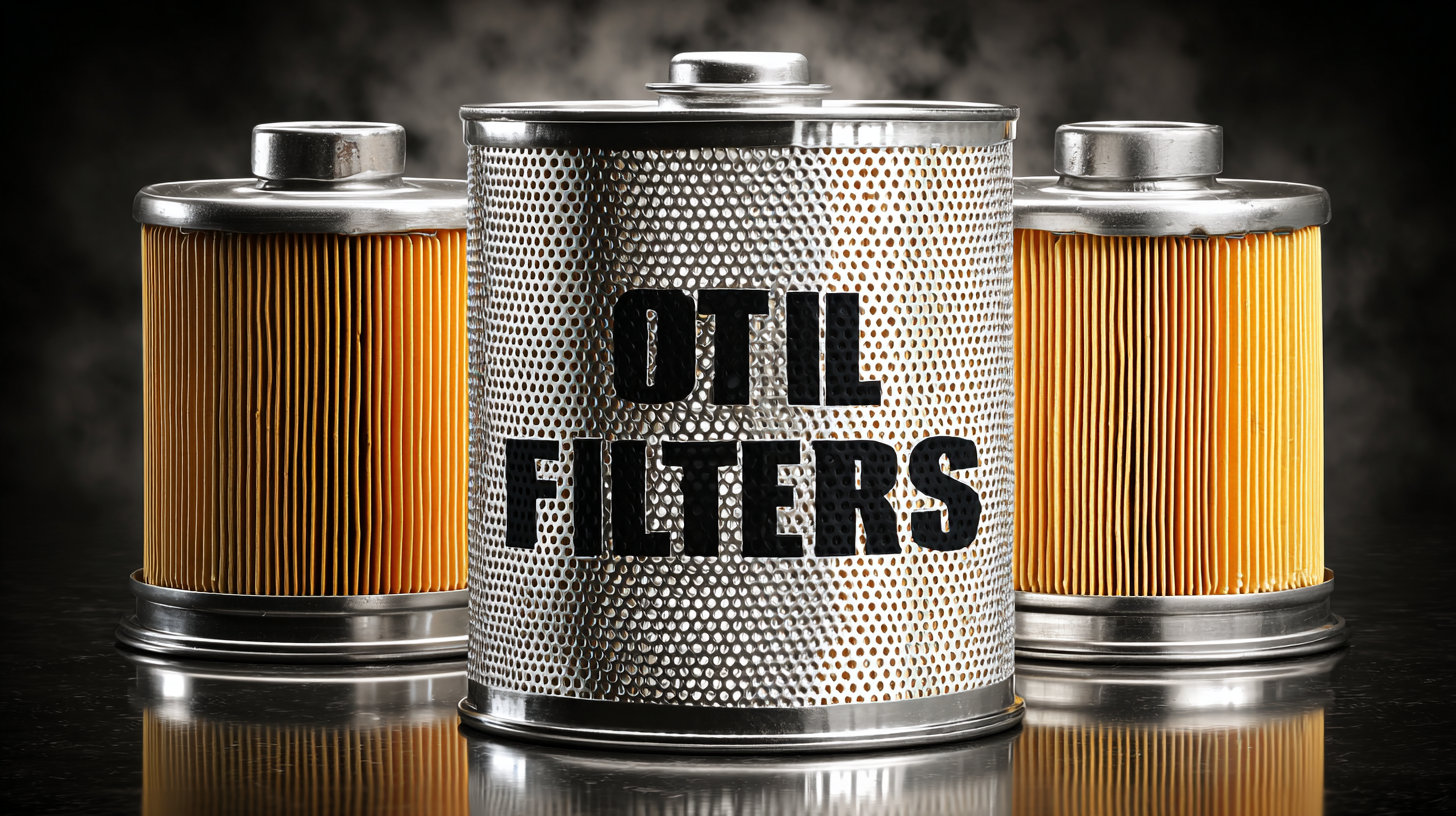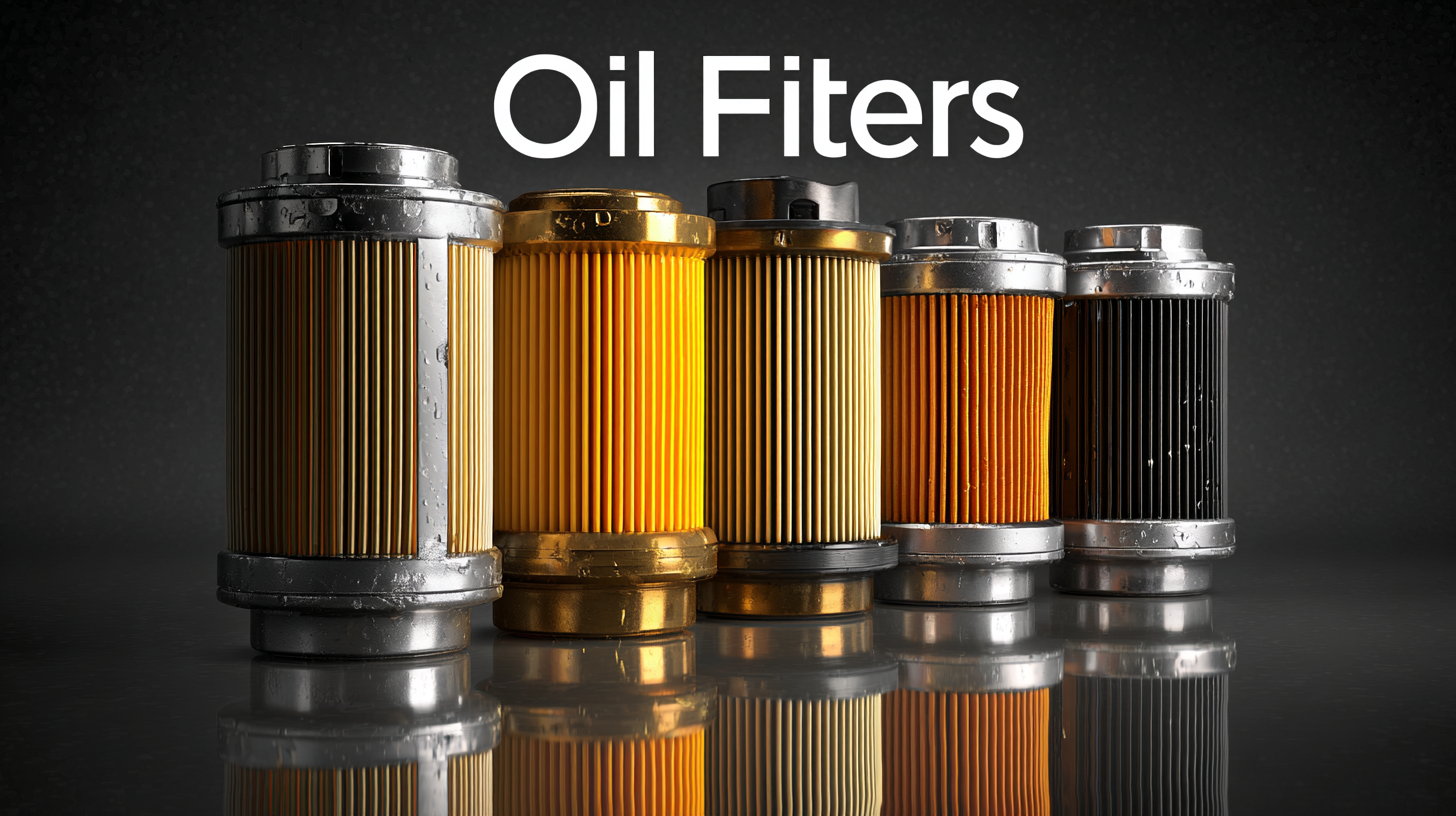
Top 5 Best Oil Filters Compared: Maximize Engine Performance and Longevity
When it comes to maintaining your vehicle's performance and ensuring its longevity, one of the most critical components to consider is the oil filter. Oil filters play a vital role in keeping your engine clean by removing contaminants and debris from the oil, which, in turn, helps protect the engine's internal components. Yet, with countless options available on the market, choosing the right oil filter can be overwhelming.

In this blog post, we will compare the top 5 best oil filters, examining their features, efficiencies, and customer reviews. By understanding the differences between these products, you'll be better equipped to maximize your engine's performance and extend its lifespan. Join us as we explore the essential role of oil filters in vehicle maintenance and highlight the best choices for your automotive needs.
Understanding the Importance of Oil Filters for Engine Performance
Oil filters play a critical role in maintaining engine performance and longevity. As they remove contaminants from the engine oil, they ensure that the oil can effectively lubricate, cool, and clean the engine’s internal surfaces. A clogged or ineffective oil filter not only diminishes the oil’s performance but can also lead to increased wear and tear on engine components, ultimately compromising the engine’s lifespan.
Tip: Regularly check and replace your oil filter according to your vehicle's maintenance schedule. A good rule of thumb is to change the oil filter every time you change the oil, ensuring that your engine operates with clean, filtered oil.
Choosing the right oil filter is equally essential. High-quality filters can trap more dirt and debris compared to cheaper alternatives, providing better protection for your engine. It’s beneficial to research and invest in filters from reputable brands that are designed for your specific make and model.
Tip: Consider the type of driving you do. If you frequently drive in harsh conditions or stop-and-go traffic, a high-efficiency oil filter can make a significant difference in keeping your engine clean and performing optimally.
Key Features to Consider When Choosing Oil Filters
When selecting an oil filter, several key features can significantly impact your engine's performance and longevity. One of the most important factors to consider is the filter's filtration efficiency. High-quality filters can trap smaller particles and contaminants, ensuring cleaner oil circulation. This is crucial for maintaining engine health, especially in high-mileage vehicles. Look for filters with synthetic media, as they typically offer better filtration characteristics than traditional paper filters.
Another critical feature is the filter's compatibility with your vehicle. Not all oil filters are created equal, and some are specifically designed for certain engines. Always check your vehicle’s manual or consult with a trusted mechanic to determine the right filter type. Additionally, consider the filter's flow rate; a filter that provides adequate flow while maintaining high filtration efficiency is essential for optimal engine performance.
Tips: Regularly changing your oil and filter is one of the best ways to extend your engine's life. Set a schedule based on your vehicle's needs or mileage to ensure consistent maintenance. Moreover, when purchasing an oil filter, opt for reputable brands with positive reviews to guarantee you’re getting a product that meets necessary standards.
Comparison of Leading Oil Filter Brands: Pros and Cons
When considering the purchase of a hybrid vehicle in Hong Kong, it's essential to evaluate the various models available to understand their unique offerings. Hybrid cars combine the benefits of both electric and conventional gasoline engines, making them a popular choice for eco-conscious drivers. The market features a diverse range of 17 hybrid models, each with distinct advantages and disadvantages.
For instance, some hybrid vehicles are celebrated for their exceptional fuel efficiency and lower emissions, significantly reducing the overall carbon footprint. On the other hand, several models may have higher initial costs and require more expensive maintenance due to the complexity of their systems. Additionally, certain hybrids offer superior acceleration and handling, while others prioritize passenger space and comfort, catering to different lifestyle needs. By examining these pros and cons, potential buyers can make informed decisions and select the hybrid car that best fits their requirements in the bustling urban landscape of Hong Kong.

How to Properly Maintain and Replace Your Oil Filter
Proper maintenance and timely replacement of your oil filter are crucial for maximizing your engine's performance and longevity. An oil filter helps remove impurities from the engine oil, which can otherwise cause wear and reduce efficiency. According to industry reports, a clean oil filter can extend engine life by up to 50%. Regular inspections and changes are recommended every 3,000 to 5,000 miles, depending on your vehicle's specifications and driving conditions.
In addition to routine maintenance, it's important to use high-quality filters that meet or exceed manufacturer standards. A study by the Automotive Oil Change Association highlighted that using subpar filters can lead to a 25% drop in oil flow, potentially leading to engine overheating or failure. As automotive technology advances, such as the shift towards electric vehicles aimed at reducing air pollution, traditional oil maintenance practices may evolve. However, for combustion engines, understanding and adhering to proper oil filter maintenance remains a foundational practice for vehicle longevity.

The Impact of Quality Oil Filters on Engine Longevity and Efficiency
The importance of high-quality oil filters cannot be overstated when it comes to maximizing engine longevity and efficiency. An oil filter's primary function is to remove contaminants and particles from the engine oil, ensuring that the oil remains clean and effective in lubricating engine components. When oil filters are subpar or neglected, they can become clogged, leading to reduced oil flow and increased wear on critical engine parts. This scenario not only diminishes engine performance but can also lead to costly repairs down the line.
Choosing the right oil filter is pivotal for optimizing engine performance. Quality oil filters are designed to trap more contaminants and maintain proper oil flow, allowing the engine to operate at peak efficiency. Additionally, a well-functioning oil filter contributes to better fuel economy, as the engine does not have to work as hard to circulate oil through a clogged filter. Investing in a top-grade oil filter is a proactive measure in the upkeep of an engine, ultimately enhancing its longevity and reliability on the road.
Top 5 Best Oil Filters: Impact on Engine Performance and Longevity
This chart illustrates the estimated longevity of various oil filters, showing the impact of quality oil filters on engine performance. Higher-quality oil filters are associated with longer engine lifespan, thereby enhancing overall efficiency.
